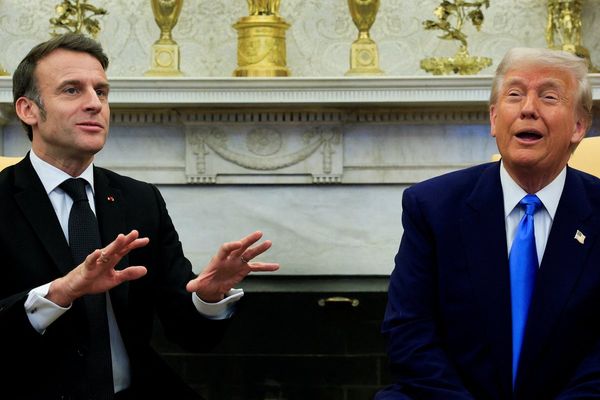The Fed meeting setup for today looks a lot like the situation going into the July meeting. Ahead of each, the S&P 500 rallied strongly off bear-market lows, as investors bet that the Federal Reserve could signal a less-hawkish policy outlook.
The bulls proved right in July, as Federal Reserve chief Jerome Powell suspended guidance and seemed to hint at a more moderate pace of tightening going forward. The S&P 500 surged as much as 18% from June 16 lows, exiting a bear market. Meanwhile, the 10-year Treasury yield retreated close to 2.5% and the 30-year fixed-rate mortgage to 5%.
Fed Chief Powell's Lesson Learned
Yet the Fed would like to see a much different outcome this time around. Powell learned his lesson as that summer rally, fueled by expectations for a Fed U-turn to rate cuts in 2023, mostly reversed the tighter financial conditions from nearly six months of rate hikes. That allowed the job market to tighten further and service-sector inflation to accelerate.
Markets fully expect a 75-basis-point Fed rate hike on Wednesday, the fourth such supersize hike. But investors are hoping Powell will drop hints of a downshift to no more than 50 basis points at the Dec. 13-14 Fed meeting and a coming pause in early 2023.
Those hopes are likely to be dashed. Powell has turned very guarded in discussing Fed policy since his July 27 news conference lit a fire under the S&P 500. In introducing his Aug. 26 speech at Jackson Hole, Wyo., Powell said, "Today, my remarks will be shorter, my focus narrower, and my message more direct."
His message was a stark one: In order to avoid a 1970s-style bout of chronic high inflation, the Federal Reserve will keep interest rates high for an extended period. "We will keep at it until we are confident the job is done."
Powell's pledge of unwavering hawkishness, stiff-arming talk of a quick Fed pivot, succeeded in tightening financial conditions. The 10-year Treasury yield climbed past 4% and the 30-year fixed mortgage 7%.
Fed Meeting Risk For S&P 500
But with the S&P 500 back in rally mode, despite a moderate pullback in stock market action on Wednesday, following declines Monday and Tuesday, Powell may accentuate the negative. "Committing to a slower pace of rate hikes could result in a larger risk-on rally, undoing the Fed's efforts to tighten financial conditions," wrote Nomura economists Aichi Amemiya and Rob Dent.
To counteract that possibility, "We see a risk of Powell mentioning that incoming inflation data thus far does not support a downshift in the size of rate increases," they wrote. They're also not ruling out a possibility that Powell throws out a 5% figure as a possible terminal rate, meaning the Fed's highest rate of the cycle.
Still, there's a limit to how hawkish Powell can be, partly because a few Fed policy committee members, including vice chair Lael Brainard, are already uncomfortable with rapid-fire 75-basis-point hikes.
December Fed Pivot?
Even if Powell is of a mind to start downshifting the pace of rate hikes, he might keep that close to the vest until the December meeting. That's because Fed policymakers will update their rate projections for 2023 and beyond at the year's final meeting. Slower rate hikes, in combination with projections showing a hawkish rate outlook, might not be great fodder for the bulls.
But short of a surprise — like Powell mentioning a 5% rate — it's not clear whether Powell will be able to derail the current rally. Investors are seeing a glass half-full at the moment. Inflation is coming down and leading indicators of rent inflation are turning south. Wage growth is decelerating, and there's a good chance we'll get a soft October jobs figure. And after hiking so far and so fast, there's a very good chance the Fed will pause rate hikes in the first quarter of 2023.
Be sure to read IBD's The Big Picture column after each trading day to get the latest on the prevailing stock market trend and what it means for your trading decisions.
Please follow Jed Graham on Twitter @IBD_JGraham for coverage of economic policy and financial markets.







